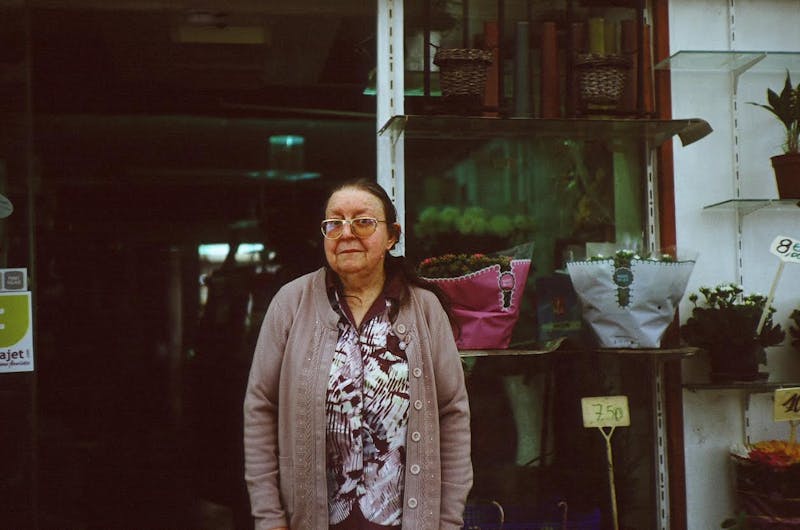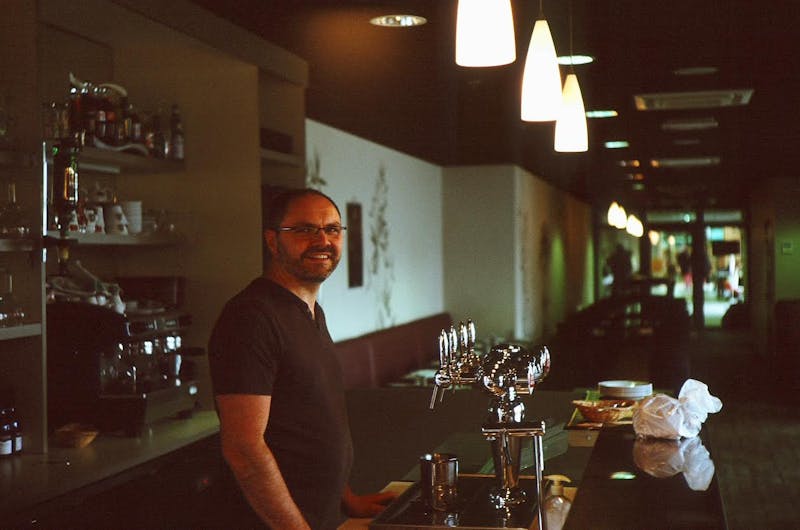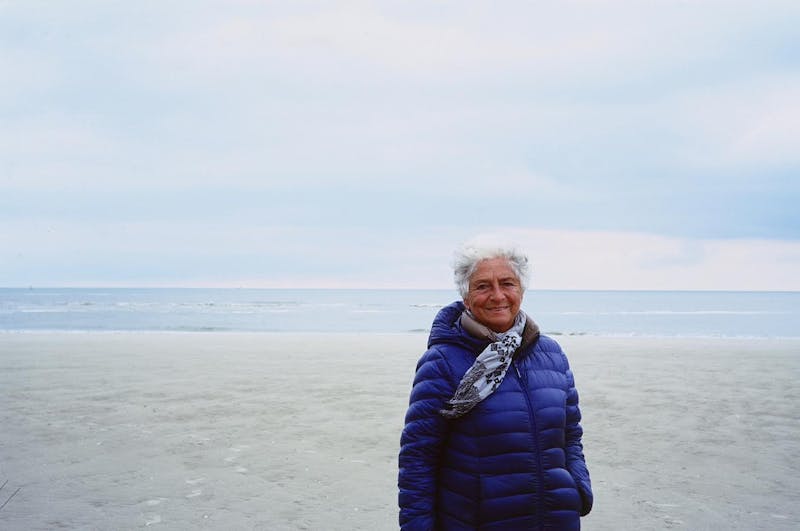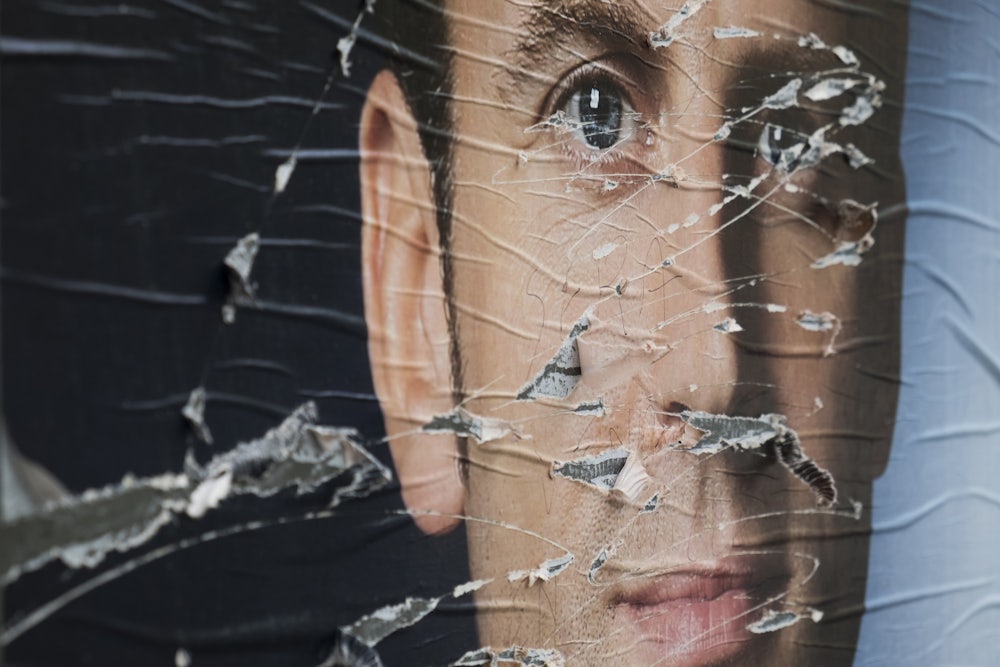In 2002, when Jacques Chirac beat the right-wing Jean-Marie Le Pen to win the French presidency, Le Pen won just 17.8 percent of the vote, and not a single region of the country. Fifteen years later, Le Pen’s daughter Marine appears unlikely to beat Emmanuel Macron, an independent centrist, in a run-off on Sunday. But she is set to win more than 40 percent of the vote—and the first regional victories for her party, the National Front.
These places will become her powerbases, crowning her campaign even in defeat. Should Macron, as president, struggle to unite the wrecked establishment parties on the left and the right, she will become an attractive alternative.
The most significant region of them all is Haute-de-France, a swath of land stretching from the coast at Calais to just north of Paris. Le Pen did better here than anywhere else in round one, winning 31 percent of the region. Macron, with 19.4 percent, came third. In the middle of this area lies the River Somme, and the small city of Amiens—Macron’s birthplace and hometown.
As a teenager, Macron was sent away from Amiens by his parents, after falling in love with his then-teacher and now-wife. The provincial boy never returned, and over the course of the campaign he has barely mentioned his childhood city. When he has, he has tried to turn its historical role during the World Wars into a pointed criticism of Le Pen’s jingoism.
A century ago, the Battles of the Somme were fought 20 miles downriver from Amiens. Now, Macron points out, the city and its surrounding areas are scattered with memorials. “Nationalism is war,” he warned Le Pen in an early debate. “I come from a region that is full of its cemeteries and I don’t want to go back to that.”
At the St. Pierre Cemetery, on the road that once led to the Western Front, hundreds of young men are buried beneath French flags, their gravestones jutting from the earth side by side, row upon row. The perfect symmetry of their crosses is broken here and there by Islamic tablets, cut from the same stone but with a curved shape. Collectively, they are a fraction of the hundreds of thousands of French who died here. But together, they show the reality of France’s history.
At the entrance, the graveyard’s keeper stands with a cigarette in hand. He is lithe, about 30 years old, with ice-blue eyes. The cemeteries of which Macron speaks are his office, and he’s closing for the day.
Does he share Macron’s fear, that nationalism is war? He shrugs and shakes his head. “Separate things should be kept separate.” When Sunday’s vote is brought up, he turns away. “I don’t want to talk about it. I don’t want to make a mistake.”
Across the road is a small, run-down florist. A loud bell signals our entrance. Several moments later, a short, elderly woman emerges from a backdoor. Her name is Marie; she is frail but firm, and happy to talk.
Macron’s words have no meaning for her either. “He says whatever he needs to in a situation. It is clearly the wallet he sees, c’est tout.” This becomes a running theme of the conversation. Whenever Macron is mentioned, “the wallet” is not far behind.
She didn’t vote for a major candidate in the first round and remains undecided how she will vote on Sunday, or if she and her husband will vote at all. “This year there’s going to be a lot of abstentions,” she says, waving her finger knowingly, “because frankly neither of these candidates are what people want.”

She’s pro-Europe—“c’est bien pour tout le monde”—but Le Pen seems more likely to win her vote. She has “convictions valide, she wants to do things that are good for France.” The worry? “With her, it’s that she might return to Front National”—in a tactical ploy, Le Pen stood down from leading the party last week—“and that’s no good. I’m also afraid that she is … if you like … un peu raciste. And I am terrified by this, terrified. I’m not at all racist, so that’s two black marks for me.”
As she talks, a third fear becomes clear: Le Pen taking France out of the eurozone. “One of the worst things about Le Pen is that she wants us to return to the franc. We can’t let France be diminished, we won’t be able to buy anything. We buy our flowers from Holland.”
For the entirety of the conversation, she doesn’t mention either of the candidates’ names. Le Pen is “she,” Macron is l’autre: “the other one.” If she goes to Le Pen, it will be with reluctance. But a vote for l’autre is inconceivable. Does he not have any good qualities? She pauses. Ooof, she sighs. “At the moment, I don’t see them. He’s got a lot to prove.”
Marie’s doubts were expressed by the Mayor of Amiens a few weeks ago: “He needs to shake off the Parisian banker image, the establishment label, so he’s only recently rediscovered his roots here.” Perhaps his most significant step in this direction took place last week, in the sole flashpoint of the second round run-up.
While Macron met with local business chiefs in the area, Le Pen upstaged him by appearing at the Whirpool dishwasher factory, on the other side of town from the cemetery. She posed for pictures with the workers camped at its gates. They are protesting their factory’s imminent closure, with their jobs set for Poland. Macron soon appeared, and, in the words of one paper, “calmed” those who had been “whipped up” by Le Pen.
The workers are still there. A canopy has been set up, and a dozen of them are standing around, smoking, drinking, staring at the fire: Thick plumes of dense, dark smoke rise from piles of rubber and tires set alight.
For Frédérique, Macron and Le Pen’s recent afternoon of attention changed nothing. “Theater,” he calls it. “People always come now and ask us who we’re voting for, we’re not interested. We’re defending our factory. It’s not about politics.”
It’s the system that’s at fault, Frédérique explains. “The EU makes it worthwhile for factories to move.” He earned €1,400 per month ($1,500). Polish workers will accept €400. “And there are no unions there. We’ve been here 20, 25 years.”
For these men, the franc is remembered fondly. The euro upended their lives long before it closed their factory. “Before, a baguette cost 1 franc, a coffee cost 2.50. Now a coffee is €1.30. That’s 6 francs.” And it’s the small imbalances within the EU that grate. “Belgium’s in the EU and a packet of cigarettes is €3 cheaper there. Why? Why does it need to be so much here?”
They all agree that Macron means a continuation of this state of affairs. “He only wants to be president so he can be president of Europe,” Frederique says, shaking his head. “He’s the same as Hollande,” France’s extremely unpopular incumbent. Is Le Pen the solution? “There is no solution.” What does he think of her? “Extrême.” So who did they vote for? “Colouche.” Who’s that? “He’s dead!” He was an irreverent comedian who died in 1986.
Around the corner from the factory, a café with modern décor sits in a supermarket parking lot, selling cigarettes and coffee. Christophe, the owner, knows the “militants de Whirlpool,” as he calls the protestors, they’re his regular customers.

His two young daughters are running around the café. His situation seems more secure than Marie’s or Frédérique’s, but he is equally exasperated. Unlike them, however, he sees a solution. “Madame Le Pen,” he says, resonantly.
“I vote for her because of what’s happening with refugees,” he says. “C’est un très, très grand probleme. Macron, he minimizes it.” He talks of his cousin, who works in a government department that is processing 17 refugees—par semaine, he stresses. That would amount to less than 900 refugees a year in a region that already accommodates over five million people.
“Look, I’ve got nothing against them but it’s we who pay to feed them, shelter them.” Does he blame the EU? “I don’t know, maybe they make us do it. They say we need to take more, but there’s already enough misery in France, why should we add to it?”
As for Macron, he smiles, “They say he is young—‘he can do this, he can do that’—but how can you reduce unemployment when all the factories close?” For Christophe, Macron’s recent visit only highlighted how he had ignored the city’s problems. “It’s his city, but he doesn’t even care about it. He wouldn’t have visited the factory if Le Pen wasn’t there.”
Christophe has no time for those who say Le Pen is dangerous. “Dangerous? How could she be dangerous? It’s already the worst it could be. The worst. Le pire. Le souk.” He laughs unexpectedly. “For me politics has been dead for years. I don’t listen to the debates anymore, just to hear the same promises repeated. I’m voting for Le Pen because I’m fed up.”
Just north of the Whirlpool factory is Le Touquet, a small seaside town a short drive from Calais, affectionately known as “Paris par plage.” It is now Le Touquet, not Amiens, that is, if anywhere, Macron’s hometown. He was married here, he voted here, and his wife has a house here.
Apartment blocks line the shore, and while some shopfronts are shuttered, the town is clean and modern, with an open sky and no factories in sight. The air is fresh, free of the smell of rubber burning. But even here enthusiasm for Emmanuel is in short supply.
Suzanne, a silver-haired 79-year-old woman with a spring in her step, is walking her dog on the beach. “Let me say something to you,” she smiles. “When I was younger I never had the time to follow an election. You know, there was work, children. This one, for the first time, I said ‘I’m going to follow it from the beginning all the way to the end.’ And now I am disgusted. Écoeuré. I can’t even bring myself to watch the debate this evening.”
Suzanne voted for Francois Fillon, of the mainstream conservative party the Republicans, in the first-round, but she did so without desire. “It should have been Juppé,” she says with sadness, referring to the former prime minister who had been defeated by Fillon in the primary. “With his experience and calm, he would have been a superb president.” Now, faced with Macron or Le Pen, she has an underwhelming but easy choice. “Marine Le Pen,” she gasps, opening her eyes wide, “If she wins I’ll have to leave! Leaving Europe would be a catastrophe, we’d double the debt.”
While Macron has her vote, she doesn’t hold out much hope. “My friend works in government, and she said to me recently: ‘Listen Suzanne, you elect Le Pen and you suffer straight away. You elect Macron, you suffer in September.’ And she’s right. He doesn’t have a party, it will be a mess.”

Macron says he can form a coalition quickly, with many Socialists reportedly ready to defect, and some conservative candidates saying they will join him. But the traditional parties may reassert themselves, or a centre-right bloc swayed by Le Pen could block his domestic agenda.
Further along Le Touquet’s beach, a young couple pushes a pram along the shore. A child waddles at their side. They are holiday makers from Lille, and when asked about the election, the father responds without hesitation. “Between the two it has to be Monsieur Macron.” Finally, an enthusiastic supporter. “No, I wouldn’t say I am an enthusiast. Not at all, it’s a vote against Le Pen.”
This is one of Macron’s great problems: his likely victory draws so much of its strength from opposition to Le Pen. But while the virtue of not being le Pen may prove enough to carry him to the presidency, it cannot carry him further. Over half of Macron’s supporters in the first round voted tactically—the highest percentage of any of the top four candidates—and only two in five of them believed his policies would improve their lives, the lowest proportion of any candidate.
“Macron’s constituency is very weak,” warns Philippe Marlière, a professor of French politics at University College London, “and it’s also by default. If you can’t rally people around yourself because of your policies and program, but only because you’re not Le Pen, you’re weak.”
It’s not even clear whether a strong hand in parliament would make Macron’s moderate platform—a mix of spending cuts, investments, and tax breaks—any more successful. As Marlière describes, “If he goes ahead with his plan for reforms, I think they will be very unpopular, and we will be in for a period of deep social unrest with demonstrations, strikes, and very strong political opposition.”
Still, Christophe insists France is already at the depths of despair. “C’est le pire,” he says, “it can’t get any worse.”
